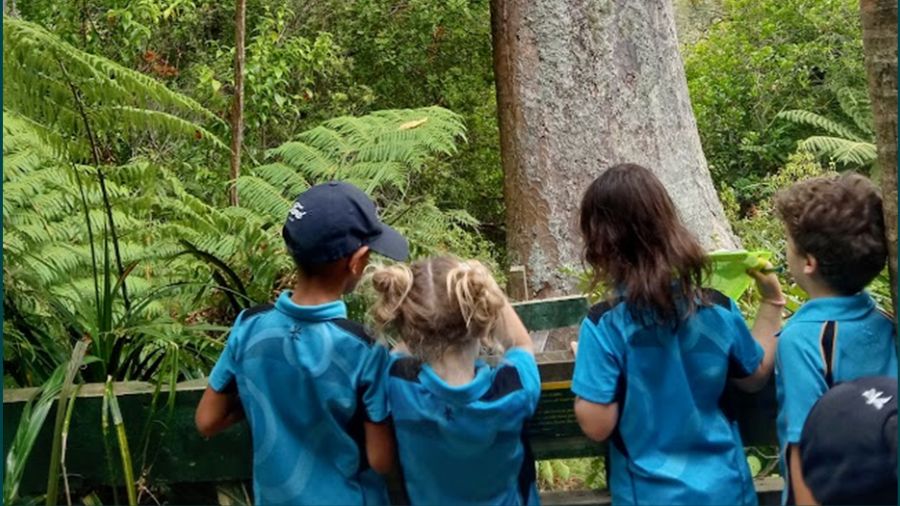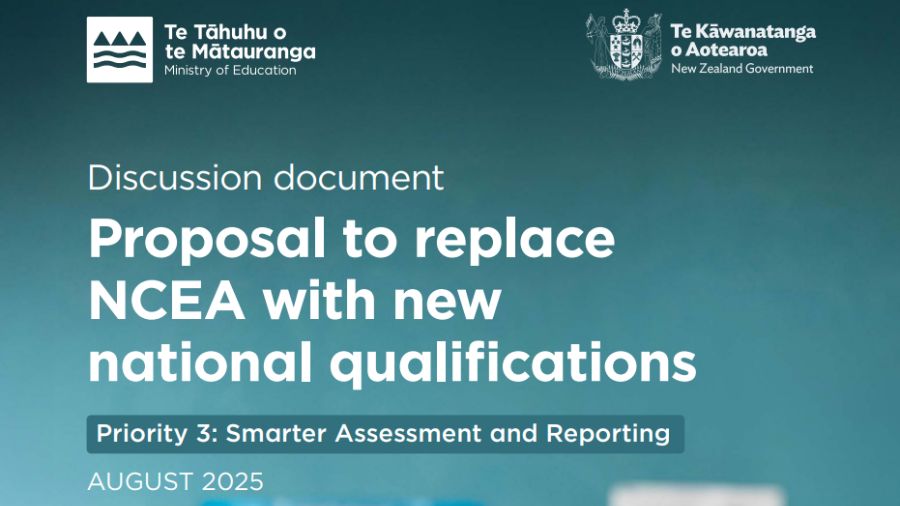Curriculum Update - September 16th
English Curriculum Consultation
The revised draft English curriculum document for Years 0 - 6 was released on August 26th, with consultation open for 4 weeks until Sept 20th.
Note that the English draft (as with the maths draft) also includes two pages that act as an introduction, with an altered version of Te Mātaiaho framework (Pg 4 of the document). Text on the consultation page states: "A summary of Te Mātaiaho is included to provide context with the learning areas. However, this is still being refined and is not currently open for consultation." NZAEE has still chosen to provide feedback on this introduction, as we feel our observations relate directly to other changes in the English draft, when compared with the 2023 version of Te Mātaiaho and English.
Schools and organisations are invited to provide feedback on the English curriculum draft using this survey.
We encourage you to read the information below and submit your own feedback before the survey closes this Friday Sept 20th.
You are welcome to use our feedback as a guide, but make sure you adapt it to work for your own organisation, which will make the feedback more effective.
As part of our curriculum review work, NZAEE's advocacy sub-committee completed a comparison of the 2023 English curriculum and 2023 Te Mātaiaho draft framework, with the current 2024 English draft, to inform our feedback to the Ministry of Education. Web archive links have been used for the 2023 drafts, which are no longer available through MoE sites.
We have focused on the areas that are most likely to interest and impact environmental educators, such as the overall framework (Te Mātaiaho and UKD), purpose statements, and teaching guidance, and will not be commenting on the specific English and literacy knowledge and skills or the progressions.
Our overall observations and key points include:
- All references to Te Tiriti o Waitangi and mātauranga Māori have been removed from 2024 version of Te Mātaiaho and English curriculum
- References to sustainability and mātaitipu (includes planetary value) have been removed from English purpose statement
- Less focus on te reo Māori and place-based, local learning
- The 2024 English draft is very long and content-heavy, compared with previous English curriculum documents and we are concerned this will mean less time for environmental education, including learning outside, student agency etc.
Scroll down to read our full feedback, with more specific examples of the points above and page references.
Guidance for English Feedback Survey
To help make the process easier, this section outlines the key steps we used to complete the survey and more information about what is involved.
Who can complete the survey?
Individuals or organisations, including Schools, Educational Organisations or 'Other'. Providing the name of your organisation is optional.
Which questions are required?
There are only a few required questions, allowing you to provide general feedback without getting into specific English and literacy skills/content or progression levels. You can select 'Neither agree nor disagree' for those questions that don't apply to you.
Required questions include those about Learning area structure, Teaching guidance and Planning guidance, along with the Overall comments at the end where you can add text into an open text box - this is the main section we completed for the English survey.
Resources: there is a question at the end which is is only for teachers/schools, so we selected 'No' but we did include some questions about resources in our general feedback.
NZAEE responses to English survey
Overall Comments: Please indicate your level of agreement with the following statements about the draft English years 0 to 6 content:
It is knowledge rich. DISAGREE
It is underpinned by the science of learning. NEUTRAL
It is organised logically. NEUTRAL
It uses consistent and clear language. DISAGREE
It is clear and easy to use. NEUTRAL
It is inclusive of evidence informed teaching practices. DISAGREE
It is internationally comparable. DISAGREE
It is inclusive of all students. STRONGLY DISAGREE
The section that follows is a copy of the general feedback we added into the Overall Comments box.
If you also read our feedback on the maths draft, you will notice that our introductory comments are the same, and we make some similar points. However, we have adapted the text and main points to reflect our observations and concerns for English, with specific references to both versions (2023 and 2024) of the English drafts.
NZAEE’s feedback on 2024 English Curriculum draft
The New Zealand Association for Environmental Education (NZAEE) comprises individuals, organisations and networks involved in environmental and sustainability education across Aotearoa New Zealand. Our members are community action groups, teachers and educators, researchers and academics, professional development providers, and more. NZAEE’s mission is to connect and inspire educators, ākonga and communities to learn, collaborate and take action for te taiao.
As an organisation, we are deeply committed to honouring the principles of Te Tiriti o Waitangi, recognising it as the foundation upon which all work and relationships in Aotearoa are built. This commitment must extend to the education system, where we believe that the integration of concepts, tikanga and mātauranga from Te Ao Māori are crucial and fundamental to shaping an inclusive and equitable learning environment.
At the heart of sustainability education is a commitment to integrating cultural, social, environmental, and economic perspectives, weaving these themes across all learning areas. Based on this understanding of sustainability education, and recognising the important role sustainability education plays -and will continue to play as- as we work to transition to a more sustainable and equitable future for Aotearoa, we would like to raise the following points in relation to the draft English curriculum, including the updated version of Te Mātaiaho framework:
- We are concerned by the removal of explicit reference to Te Tiriti o Waitangi in Te Mātaiaho framework introduction and the English purpose statement. This is concerning as it undermines the foundational role of Te Tiriti in guiding educational practices and promoting equity, inclusion, and partnership in the curriculum. This also is in conflict with the Education and Training Act 2020 (including, but not limited to section 127) which identifies one of the primary objectives of school Boards as giving effect to Te Tiriti o Waitangi.
- We are also concerned by the removal of explicit references to mātauranga Māori. Whilst we support aspects of Science of Learning, we acknowledge there are diverse ways of learning and knowing, including ones that value Indigenous perspectives and knowledge. We recognise the value and importance of offering education with a diversity of perspectives, and within a New Zealand context where Māori are the Indigenous people we uphold the stance that this must include recognition of Te Ao Māori and Mātauranga Māori. Without it, this is a risk of education and our education system being used as a way to perpetuate colonising worldviews. The removal of references to Mātauranga Māori is also in conflict with what the Education and Training Act (section 127) places as requirements for schools. We note that ‘te ao Māori’ is used in some of the Know statements within the English draft, but has much less prominence compared with the 2023 draft, with the term “mātauranga Māori” completely removed in the 2024 draft.
- We note that the introduction section briefly acknowledges the whakapapa of the curriculum. While this acknowledgment is important, the current presentation appears tokenistic and fails to fully honour the depth and significance of the curriculum’s origins. We would like to see this section expanded.
- We are deeply concerned at the removal of references to connection to place and learning within a local context from the introduction section (Te Mātaiaho framework). By omitting these references, the curriculum risks disconnecting learners from the unique ecological and cultural contexts of their local area, and a place-based understanding of their lives and livelihoods. From an environmental education perspective, this shift moves away from empowering students to learn from and care for their local environments, which we see as critical to becoming future leaders and informed citizens. We also see place-based and local curriculum as an opportunity to highlight the deep connections and integrated learning between English and other learning areas, such as te ao tangata | social sciences, which is also language rich and provides meaningful contexts for English and literacy learning.
- We note that this English curriculum document is very content-heavy and much longer than previous curriculum documents. We are concerned this could mean teachers will focus mainly on teaching (and regularly assessing) literacy content and less on holistic learning that includes environmental education, such as student-led inquiry & action, learning outside, and developing agency/creativity to solve important issues.
- We are concerned at the removal of references to sustainability as an application of English (from Purpose statement Pg 2 of the 2023 draft English curriculum). While some parts of the curriculum document link English to real-world and environmental issues (in the ‘Examples of Teaching Methods’), explicitly including sustainability and climate education would help encourage students to apply their literacy and subject English learning to understand and address climate change, fostering both critical thinking and a sense of responsibility towards environmental stewardship. In the 2024 English draft purpose statement, we would like to see the inclusion of a statement similar to this one from the 2023 English draft, and also with climate change listed as an example of one of the global challenges: “They use their insights to advocate articulately and persuasively for equity and sustainability and to contribute to resolving collective global challenges.” (such as climate change).
- We are pleased to see the inclusion of this statement in the 2024 English Purpose statement: “Learning in English helps them understand, enjoy, and celebrate the beauty and richness of stories from Aotearoa New Zealand, from Te Moana-nui-a-Kiwa, and the wider world.” We are also pleased to see the inclusion of “texts by Māori authors” and “stories with kupu Māori” in the Teaching Guidance. However, there is not a specific focus on te reo Māori and mātauranga Māori in this 2024 draft, compared with the 2023 draft. While encouraging the inclusion of diverse and local texts is positive, failing to explicitly recognise the unique and foundational role of Māori language and culture marginalises this important and unique aspect of Aotearoa's identity. As Treaty partners, tangata whenua should have their culture, language, tikanga and knowledge frameworks prominently reflected and given equal status throughout the curriculum. Omitting this focus fails to honour Te Tiriti o Waitangi or to provide students with a comprehensive, respectful, and representative education that truly reflects the values and heritage of Aotearoa. The 2023 English draft Purpose statement (Pg 2) included specific reference to: “Engaging with mātauranga Māori through the creation and interpretation of texts provides opportunities to strengthen knowledge and understanding of te ao Māori and Māori perspectives, and to play a part in giving effect to Te Tiriti o Waitangi.” The 2023 English draft Know statements also included: “Te reo Māori is a taonga, unique to Aotearoa New Zealand.” We would like to see these returned to the 2024 English curriculum draft.
Given the points above, we would like to know how English resources provided to schools (e.g. to support structured literacy) will be specific to Aotearoa and whether they will include environmental and local contexts. We care about this because local relevance underpins meaningful and effective education. When content and resources are tailored to the context of Aotearoa, and when students see themselves and their communities reflected in their education, learners are more likely to see the material as relevant and engaging, as it reflects their own experiences and environments.






